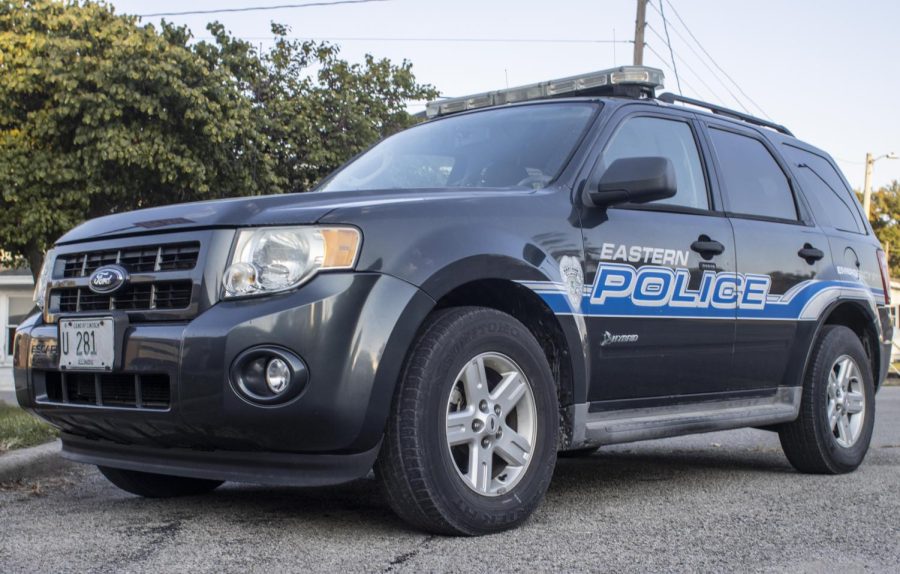UPD liutenant speaks on drug abuse
Eastern’s police and HERC will be sponsering several events throughout homecoming week without drugs and alcohol. Officials from both said they encourage students to be safe and responsible while consuming alcohol and drugs.
October 12, 2022
Eastern’s University Police Department shared how drug abuse and substance control is a very serious disease and how to support someone who needs help.
Alcohol addictions and substance abuse can be a concerning and difficult disease. Eastern does their best to ensure the safety of every person on campus who may be struggling.
One of the newest additions to the campus police, Michael Lusk, a UPD lieutenant, said that the school will take all precautions to try and avoid involving the criminal justice system.
That being said, not every situation is the same, or safe.
Someone being under the influence can be a very different citation in comparison to the person dealing the drug.
“Unless you’re driving a motor vehicle and in terms of a DUI, we will try to pursue remedies through counseling or through accountability that will allow you to sort of acknowledge or understand what you’ve done and be able to take appropriate steps to address the issue and deal with it,” Lusk said.
Even though Lusk has only been in Charleston for a short period of time, he said he was relieved that Charleston is a much quieter area in regards to drugs and substance abuse.
However, that doesn’t mean that he hasn’t seen some devastating incidents.
“Unfortunately, over the course of my career, and because of the places I’ve worked, I’ve seen examples where people clearly had issues where they had attempted to self-medicate,” Lusk said. “They had issues where they were trying to help someone else by giving them some of their drugs, and things that involve just bad choices that really have negative outcomes.”
Lusk addressed addiction problems as a whole.
“Addiction problems are very real,” Lusk said. “If it’s not addressed, it’s not acknowledged, it’s not handled. The biggest part of anything is admitting that if you do have a problem, that’s actually a problem. And too often people are not able to recognize the damage.”
The cycle of substance abuse can be very dangerous, not only to the person consuming the drugs, but the bystanders too.
According to Lusk one in four people suffer from a form of mental health, while one in five have a direct or indirect connection to someone suffering from mental health.
This can lead to something called “Co-Existing Disorders,” which means having more than one illness at a time. The crossover between mental health issues and substance abuse becomes that much higher in an individual.
“The intersection of these two is a very big problem for many people,” Lusk said. “And when you recognize that there is a drug or alcohol issue, the chances are better than average, you’re gonna find a mental health issue or an extension to a mental health issue.”
Some of the common warning signs for addiction include depression, isolation, spontaneous bursts of anger, hypersexuality and withdrawing from others.
Lusk also explained some other indicators can be a withdrawal from classes, inattentiveness to friends and a lack of hygiene.
Even if the conversation is difficult to have, it’s important to be honest and share your concerns with the person who is struggling.
“You need help.. I have to be able to say ‘look, you’re my friend, my brother, you’re my compatriot, you need help, and I want to make sure that you get it,’” Lusk said. “I think it’s important [as a friend] to be able to extend yourself to that point.”
There are a lot of challenges that come with recovery. Oftentimes, part of the reason individuals do not go through recovery is because they would want someone to do it for them.
Lusk said even if friends cannot do this journey for you, they can support you on your road to sobriety.
“I think it’s important to let people know that they have a support system in place,” Lusk said.
Adriana Hernandez-Santana can be reached at 581-2812 or at aihernandez@eiu.edu.




































































